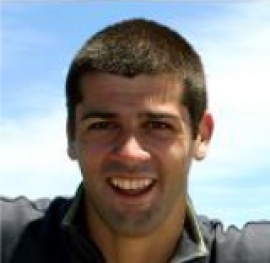My PhD aimed to improve scientific knowledge of insular lotic systems, providing an inventory and spatiotemporal analyses of the benthic macroinvertebrate community, identifying the main environmental factors responsible for observed variations, giving emphasis to the chironomid community.
Currently research focus on the paleolimnology and paleoecology on oceanic islands aiming to study past climate and environmental changes and their causes, with a focus on human impact. These natural environmental archives include lake sediments and peat bogs sampled and analysed using a multiproxy approach (e.g. classical as well as cutting-edge proxies) allowing the reconstruction of past environmental changes (e.g. climatic, volcanic and anthropogenic change) and ecosystem processes (e.g. food web changes following the introduction of top predators, methane cycling in lakes). In the area of Paleoecology it has established several international networks, leading to the publication of several scientific articles in international journals, and the integration in teams in international, national and regional projects.



